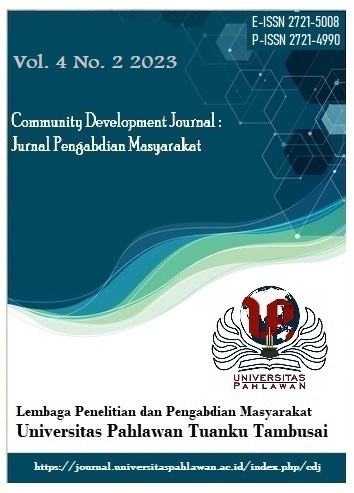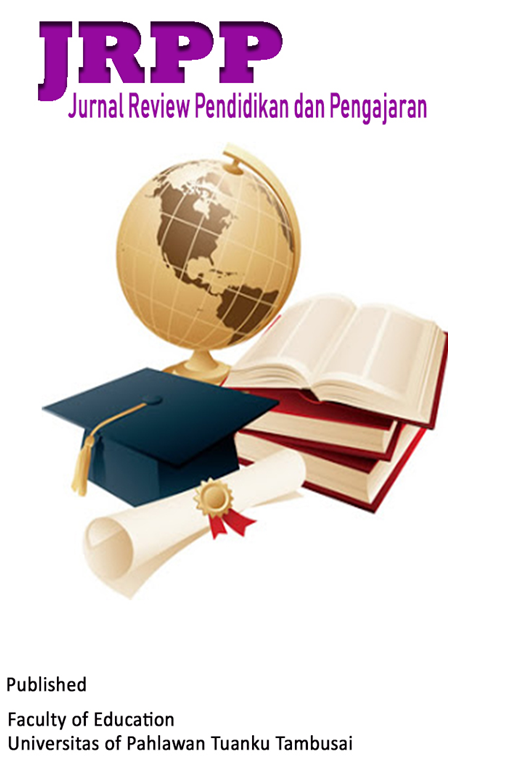EFFECTIVE MARKETING STRATEGIES FOR MSMEs DURING RAMADAN IN INDONESIA
DOI:
https://doi.org/10.31004/cdj.v4i2.13792Keywords:
Strategy, Marketing, Effective, MSMEs, RamadanAbstract
The month of Ramadan is an important moment for Muslim communities in Indonesia which is characterised by fasting for a whole month. In addition to having high religious value, the month of Ramadan is also a moment to look forward to shopping and doing business for MSMEs. In Indonesia, MSMEs are one of the largest sectors and contribute significantly to the economy. However, MSMEs still experience many obstacles in marketing their products, especially during the month of Ramadan. Therefore, research is needed on effective marketing strategies for MSMEs during the month of Ramadan in Indonesia. This research is qualitative in nature. Data collection techniques include listening and recording important information to conduct data analysis through data reduction, data display, and conclusion drawing. The results of this study concluded that in preparing an effective marketing strategy, MSMEs should consider online presence, special offers, events or competitions, improving product and service quality, collaborating with other businesses, paying attention to customer needs, and halal products. MSMEs should also monitor the performance of their marketing campaigns, consider ethics in marketing, and conduct sufficient research and analysis before designing their strategies.References
Alghafli, Z., Hatch, T., Rose, A., Abo-Zena, M., Marks, L., & Dollahite, D. (2019). A Qualitative Study of Ramadan: A Month of Fasting, Family, and Faith. Religions, 10(2), 123. https://doi.org/10.3390/rel10020123
Ausat, A. M. A., Al Bana, T., & Gadzali, S. S. (2023). Basic Capital of Creative Economy: The Role of Intellectual, Social, Cultural, and Institutional Capital. Apollo: Journal of Tourism and Business, 1(2), 42–54. https://doi.org/10.58905/apollo.v1i2.21
Ausat, A. M. A., & Peirisal, T. (2021). Determinants of E-commerce Adoption on Business Performance: A Study of MSMEs in Malang City, Indonesia. Journal On Optimizations of Systems At Industries, 20(2), 104–114. https://doi.org/10.25077/josi.v20.n2.p104-114.2021
Ausat, A. M. A., Siti Astuti, E., & Wilopo. (2022). Analisis Faktor Yang Berpengaruh Pada Adopsi E-commerce Dan Dampaknya Bagi Kinerja UKM Di Kabupaten Subang. Jurnal Teknologi Informasi Dan Ilmu Komputer (JTIIK), 9(2), 333–346. https://doi.org/10.25126/jtiik.202295422
Ausat, A. M. A., & Suherlan, S. (2021). Obstacles and Solutions of MSMEs in Electronic Commerce during Covid-19 Pandemic: Evidence from Indonesia. BASKARA: Journal of Business and Entrepreneurship, 4(1), 11–19. https://doi.org/10.54268/BASKARA.4.1.11-19
Ausat, A. M. A., & Suherlan, S. (2022). Adopsi E-commerce di Negara Berkembang. JURNAL LENTERA BISNIS, 11(1), 8. https://doi.org/10.34127/jrlab.v11i1.457
Ausat, A. M. A., Widayani, A., Rachmawati, I., Latifah, N., & Suherlan, S. (2022). The Effect of Intellectual Capital and Innovative Work Behavior on Business Performance. Journal of Economics, Business, & Accountancy Ventura, 24(3), 363–378. https://doi.org/10.14414/jebav.v24i3.2809
Gadzali, S. S. (2023). Determinants of Consumer Purchases in the Perspective of Business Psychology. Apollo: Journal of Tourism and Business, 1(1), 23–28. https://doi.org/10.58905/apollo.v1i1.9
Harahap, M. A. K., Sutrisno, S., Fauzi, F., Jusman, I. A., & Ausat, A. M. A. (2023). The Impact of Digital Technology on Employee Job Stress: A Business Psychology Review. Jurnal Pendidikan Tambusai, 7(1), 3635–3638. https://jptam.org/index.php/jptam/article/view/5775
Hasan, H., Sulong, R. S., & Tanakinjal, G. H. (2020). Halal Certification Among the SMEs in Kinabalu, Sabah. Journal of Consumer Sciences, 5(1), 16–28. https://doi.org/10.29244/jcs.5.1.16-28
Jamaluddin, J., Hidayatulloh, H., Zaini, A., & Sanawi, S. (2022). The problems of implementing Halal certification through the self-declaration program for MSMEs in Indonesia: A Case Study. International Journal of Advances in Social and Economics, 4(1), 30–36. https://doi.org/10.33122/ijase.v4i1.221
Kamar, K., Lewaherilla, N. C., Ausat, A. M. A., Ukar, K., & Gadzali, S. S. (2022). The Influence of Information Technology and Human Resource Management Capabilities on SMEs Performance. International Journal of Artificial Intelligence Research, 6(1.2), 1. https://doi.org/https://doi.org/10.29099/ijair.v6i1.2.676
Kifli, S. N. (2023). Halal Certification in Brunei Darussalam: Bureaucratisation in Everyday Life (Vol. 20, pp. 35–49). Springer. https://doi.org/10.1007/978-981-19-6059-8_3
Kraugusteeliana, Surjati, E., Ausat, A. M. A., Pramono, S. A., & Prabu, H. K. (2022). A Literature Review on the Application of Technology During Covid-19 and Its Relationship to Performance. International Journal Of Artificial Intelligence Research, 6(1.2), 1. https://doi.org/https://doi.org/10.29099/ijair.v6i1.2.765
Ma’mun, S. (2016). The Fasting of Ramadan: Forming Positive Personal Character. HUMANIORA, 7(3), 405–413.
Ramadhan, A., & Gunanto, E. Y. A. (2021). Decision on Halal Certification of Food and Beverage Products Processed by UMKM Products in Tangerang City - Study of Religiosity, Regulation and Branding. Jurnal Ilmiah Ekonomi Islam, 7(2), 786–797.
Sampe, F., Yusuf, M., Pakiding, D. L., Haryono, A., & Sutrisno. (2022). Application Of Digital Marketing In Maintaining Msmes During The Covid-19 PandemiC. Jurnal Darma Agung, 30(2), 663–676.
Subagja, A. D. (2023). Analysis of Factors Leading to E-commerce Adoption. Apollo: Journal of Tourism and Business, 1(1), 1–5. https://doi.org/10.58905/apollo.v1i1.6
Subagja, A. D., Ausat, A. M. A., & Suherlan. (2022). The Role of Social Media Utilization and Innovativeness on SMEs Performance. Jurnal IPTEK-KOM (Jurnal Ilmu Pengetahuan Dan Teknologi Komunikasi), 24(2), 85–102. https://doi.org/https://doi.org/10.17933/iptekkom.24.2.2022.85-102
Supatmin, S., Paeno, P., & Sutrisno, S. (2022). The Role of Analysis Financial Report Management in Increasing MSMES Incomes. Jurnal Ekonomi, 11(3), 1815–1819.
Sutrisno, Cakranegara, P. A., Asri, F., Yusuf, M., & Sahala, J. (2022). Strategi for MSME Development Using Financial Technology to Increase Capital and Consumers. Jurnal Darma Agung, 30(2), 677–686.
Sutrisno, Cakranegara, P. A., Hendrayani, E., Jokhu, J. R., & Yusuf, M. (2022). Positioning Women Entrepreneurs in Small and Medium Enterprises in Indonesia – Food & Beverage Sector. Enrichment: Journal of Management, 12(5), 3873–3881.
Downloads
Published
How to Cite
Issue
Section
License
Copyright (c) 2023 Sutrisno Sutrisno, Abu Muna Almaududi Ausat, Riko Mersandro Permana, Sonny Santosa

This work is licensed under a Creative Commons Attribution-ShareAlike 4.0 International License.
















